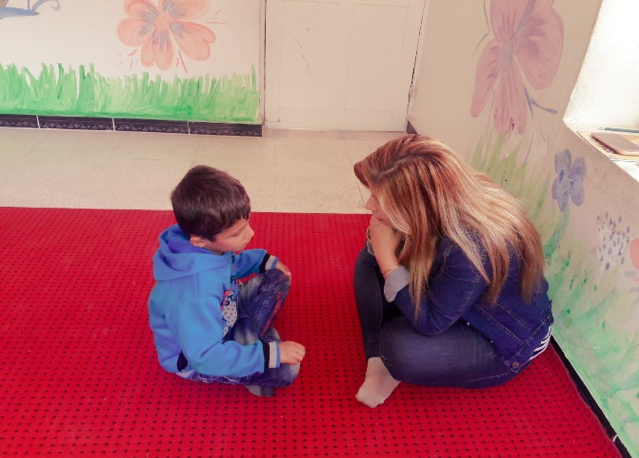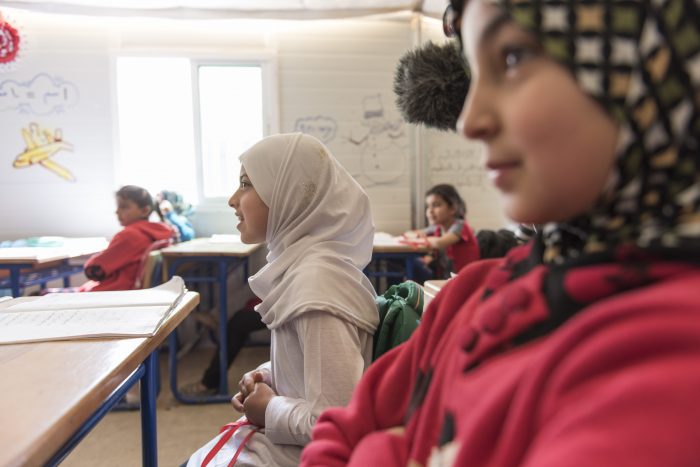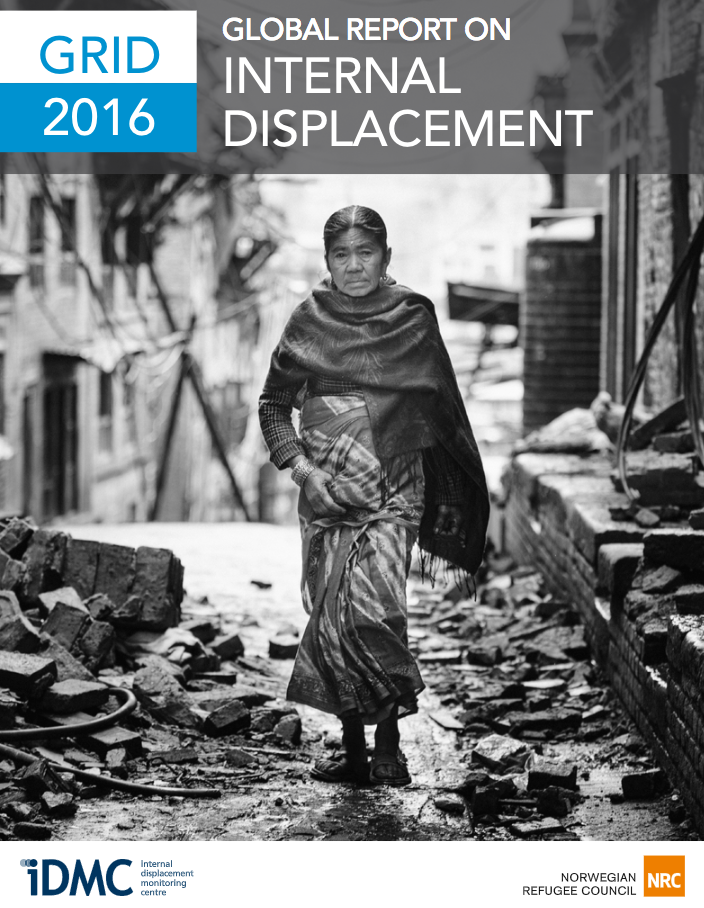Resilience Through the Eyes of Youth
It might not seem remarkable that 395 students out of 404 showed significant improvement on test scores or that 244 children ages 5-8 attended three-hour sessions, five days a week with activities such as music, art and sports. Not too extraordinary. Now, suppose I told you these young people were in Syria? A place where […]


It might not seem remarkable that 395 students out of 404 showed significant improvement on test scores or that 244 children ages 5-8 attended three-hour sessions, five days a week with activities such as music, art and sports. Not too extraordinary. Now, suppose I told you these young people were in Syria? A place where formal education and psychosocial well-being is not as high a priority as staying safe. Grants from the Center for Disaster Philanthropy (CDP) helped young people build resilience to better cope with their often-dire circumstances.
The CDP Global Refugee Crisis Fund provided a grant to Mercy Corps for their No Lost Generation Community Centers – Education for the Internally Displaced. The curricula used and number of sessions were fully aligned to those used in official Syrian schools. Mona*, a 12-year-old girl, was selected by Mercy Corps and its local partner to enroll in the education courses. Mona has 13 siblings. Both her parents passed away and the siblings had to relocate to escape shelling and airstrikes. Four of her brothers were kidnapped. Mona had to leave school when they relocated and could not enroll again because she could not afford it and was forced to work to support her siblings. During the first month at the center, Mona showed signs of anxiety, stress, and paranoia. She also found it hard to express herself and interact with other children. But in the second month, teachers were reporting that Mona began showing signs of improvement. She communicated more easily, had fun, enjoyed the classes, and improved in participation and performance — all because she felt she was catching up with her peers and had the educational opportunity she needed. The local partner sought referral pathways to refer Mona to professional psychosocial and relief agencies to support her family.
The CDP Global Refugee Crisis Fund also awarded a grant to Concern Worldwide U.S. for their project: Supporting Community-Based Protection Mechanism Benefitting Syrian Children and their Caregivers in Syria. Structured programs set in child-friendly spaces provided psychosocial support to children and their families. Mohammed* is 8 years old and lives with his mother in a house donated by his grandfather. His father has been imprisoned for the last four years. The family lives in very tragic circumstances, as they remain without news about the father and the mother depends on support from her extended family to get by. Due in part to his difficult circumstances, Mohammed has been a very shy child. When he arrived at the program, he did not take part in the group activities. He missed his father greatly and just wanted to stay home because as he said: “I’m seeing my friends going out with their fathers and buying lovely things and I hope to be like them.” The teachers encouraged him to participate in the activities, and with the psychosocial support sessions his morale and confidence improved; he began engaging in the activities with his peers. These two stories represent the children and youth who are building personal resilience in meaningful ways.
While tragedies such as earthquakes and hurricanes grab our attention, the ongoing humanitarian crisis of refugees is – much too often – the silent “disaster.” For youth like Mona and Mohammed, let us not forget our attention is needed so the commitment of these young people, their teachers and caregivers to become more resilient as they aspire toward a real future is not in vain.
*Names changed for security purposes.
More like this

Investing in Hope for Young Syrians
